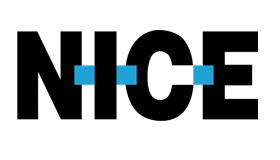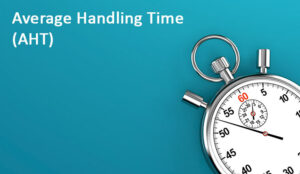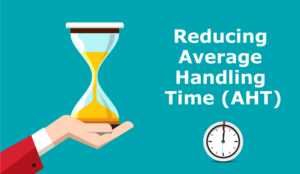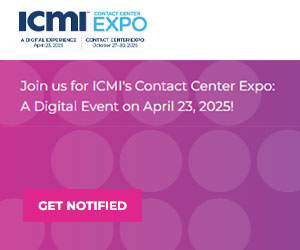How long is four and a half minutes?
It depends on the context. If you’re rushing to make a flight, it can go by in the blink of an eye.
But if your boss is Amazon CEO Jeff Bezos, and you’re sitting with him while on hold on your company’s own customer service hotline, four and a half minutes probably feels like eternity.
That’s the story Brad Stone tells in his book, The Everything Store: Jeff Bezos and the Age of Amazon.
In one meeting of Amazon executives during the holiday season, Bezos asked his global VP of customer service how long the telephone-support hold times were. When he was told they were less than a minute, Bezos dialed the number on the room’s speaker phone to check for himself.
It was four and a half interminable, uncomfortable minutes before anyone answered the call.
Wait time is only one of the three parts that make up average handle time (AHT), a critical call centre metric that measures time from the moment the customer calls until the issue is resolved. The lower the AHT, the more efficient a call centre tends to be operating. It means a representative can handle more calls, more customers can be served, and customers will see resolutions more quickly.
Of course, AHT includes the time an agent spends on the phone with the customer as well as customer wait time and any post-call work the agent needs to do. This means that there are multiple approaches to reducing AHT:
- Help agents be more efficient during the call to get customers off the phone more quickly.
- Automate various post-call tasks to get agents ready to take the next call more quickly.
- Or — and this is a customer favorite — reduce wait times.
As Jeff Bezos proved in that uncomfortable executive meeting, a relatively short wait time of four and a half minutes can feel like forever — especially if a customer is already frustrated or short on time. In fact, a recent survey found that nearly two-thirds of respondents would wait just two minutes before hanging up, while 13 percent indicated that there’s no amount of hold time that is acceptable.
Consider thinking about AHT not as an agent metric but rather a key performance indicator that gives you insight into staffing levels. The more understaffed a call centre is, the higher the AHT will creep, especially during holiday rushes, sales, product recalls and other high-volume events. Unpredictable customer traffic tends to result in overstaffing or understaffing, which can either be a budget drain or lead to unhappy customers.
Fortunately, there are practical things a company can do to reduce AHT and manage unpredictable customer traffic. This includes getting the right employees in the right place at the right time using forecasting tools.
Modern workforce management solutions let companies forecast volume on all customer service channels, including voice, email and social media. They use artificial intelligence to recognize trends and cycles in historical data, as well as cause-and-effect relationships between customer service volume and other factors to help call centre managers confidently manage staffing levels. This can help reduce AHT overall, but by using AHT as a KPI to see how things are going throughout the day, managers can also fine-tune staffing levels as conditions change — and that can mean the difference between a long handle time and a very happy customer.
This blog post has been re-published by kind permission of NICE – View the Original Article
For more information about NICE - visit the NICE Website
Call Centre Helper is not responsible for the content of these guest blog posts. The opinions expressed in this article are those of the author, and do not necessarily reflect those of Call Centre Helper.
Author: NICE
Published On: 30th Aug 2018 - Last modified: 2nd Jan 2019
Read more about - Guest Blogs, NICE






 NICE is a leading global enterprise software provider that enables organizations to improve customer experience and business results, ensure compliance and fight financial crime. Their mission is to help customers build and strengthen their reputation by uncovering customer insight, predicting human intent and taking the right action to improve their business.
NICE is a leading global enterprise software provider that enables organizations to improve customer experience and business results, ensure compliance and fight financial crime. Their mission is to help customers build and strengthen their reputation by uncovering customer insight, predicting human intent and taking the right action to improve their business. 































